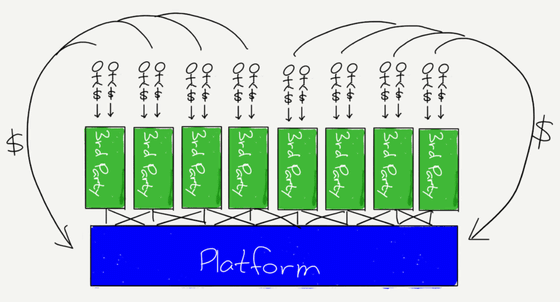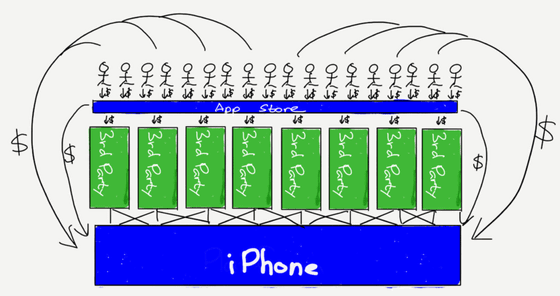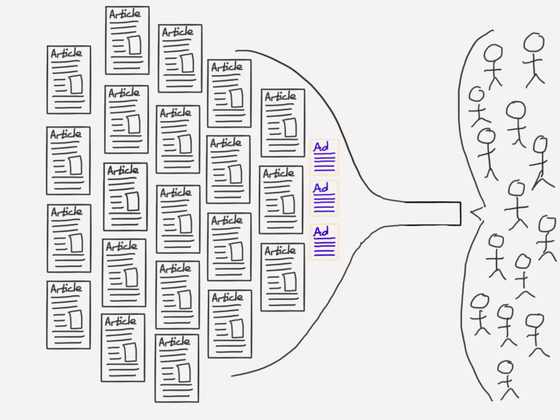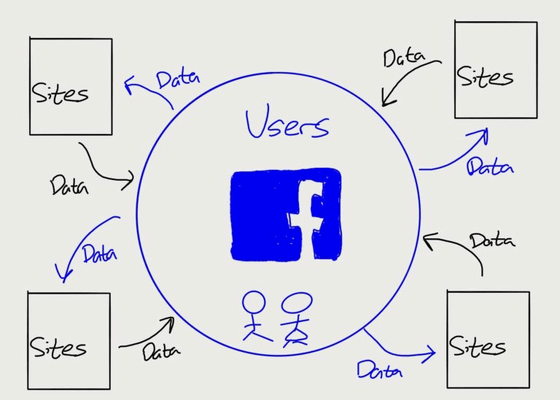What is "Bill · Gates Line" which shows the difference between "Platform" and "Aggregator" defined by Windows's creator Bill · Gates?

byThomas Hawk
Regarding the problem criticizing Google, Yelp and other local service word-of-mouth sites say that "Google designs search algorithms to preferentially display their services is anti-competitive, Analyst Ben Thompson said "Bill Gates LineWhile introducing the definition called "platform" and "aggregator" I will explain the difference.
The Bill Gates Line - Stratechery by Ben Thompson
https://stratechery.com/2018/the-bill-gates-line/
Google,As of April 2018 search engine usage rate is about 90%It is said that most people are using Google to search for information on the net. Using this search engine's share, Google has grown as the world's largest technology company in the search advertising business while developing its own services. British media · CBS has a special feature that criticizes that this search advertising business violates the antitrust law.
How did Google become the largest company in the world? - GIGAZINE

In addition, major review site such as Yelp criticized that "Google displays only its own content in search results, intentionally excluding contents of competitors," and "Focus on the user" We launched an anti-Google organization called "Google" which releases extensions that exclude Google related content from Google's search information.
Yelp in the reviews review website criticizes severely that Google is not for users - GIGAZINE

Mr. Thompson showed sympathy for Yelp while pretending that CBS features are highly biased content. And in order to think about this problem, I wrote that it is necessary to rigorously evaluate "ecosystem" centered on Google's search engine.
The original meaning of the ecosystem is "ecosystem", but in the business world it means "a large profit structure consisting of multiple companies working together". And the system that forms the basis of the ecosystem is called "platform". Regarding the definition of the platform, Mr. Thompson said investor Semir Shah and former Facebook executive Chamous Paris Hatiya talked about the business modelDialogue articles"Bill · Gates Line" is introduced with anecdote of Mr. Bill · Gates talked in.
According to the interview article, Mr. Paris Hatiya who was responsible for producing the Facebook Platform gave Mr. Gates a presentation about the Facebook Platform in order to raise $ 15 billion (about 1.6 trillion yen), and Mr. Gates "Such a thing is not a platform - the economic value of everyone who uses the system can be called the" platform "only when it is established on the economic value of the company that created the system," He said that he said.
For example, in the OS of the desktop PCAs of April 2018 Windows is about 82%, And the ecosystem centered on Windows has become very big now. This ecosystem is a form in which various third-party vendors and developers develop and provide applications and services on the Windows platform. Windows as the platform is the foundation for supporting both users and third parties, users are closely related to third parties.

On the other hand, Apple's App Store does not allow users to be closely involved with third parties, and can be used for users who have iOS devices such as iPhones, iPads, MacBooks, etc. as "aggregators" It is only mediation to. An aggregator can intervene in its contents when mediating information to users. In the App Store, the developed application is not delivered to the user as it is, it is surely delivered after review by Apple. This judgment can be said to be an intervention in the information by the aggregator.

In the case of Google, not only Yelp but countless sites depend on Google, Google's search engines can not be called platforms against the Bill Gates line. Thompson argues that Google's search engine is not an intimate link between a website and a user, it is only an aggregator that aggregates information on the Internet and delivers it to users. A word-of-mouth site such as Yelp or Trip Advisor is a "supplier (supplier)" that provides review information to search engines, and is acting as an aggregator that aggregates the review information and delivers it to the user. As an aggregator, Google mediates information from suppliers to users and earns revenue by intervening advertisements and company services at that time.

Since Google is developing an aggregator-type business, suppliers are indispensable. However, if Google does not properly display review information such as Yelp in search results, it will lead to supplier rejection. It is an interesting tactic that "Focus on the user" releases an extension function to exclude Google related content from Google's search information, and if Google does not deal with this problem, an aggregator type business using a search engine Thompson predicts that the model will not be able to be maintained over the long term.
Mr. Thompson also cites Facebook as an example of an aggregator-type business model. Facebook can orient advertisements based on user's personal information, and in fact "Aimed at specific individuals using Facebook's advertisement, succeeded in changing jobs"Was reported, or"Manipulate voting behavior by displaying advertisements according to personal tastes on FacebookThe allegation that it is raised also emerges. These can be said that Facebook is developing an aggregator-type advertising business model.

Mr. Thompson concludes that clearly distinguishing the platform from the aggregator will not only be an academic story but a big impact on the company's competitive strategy in the future.
Related Posts:
in Note, Web Service, Posted by log1i_yk





